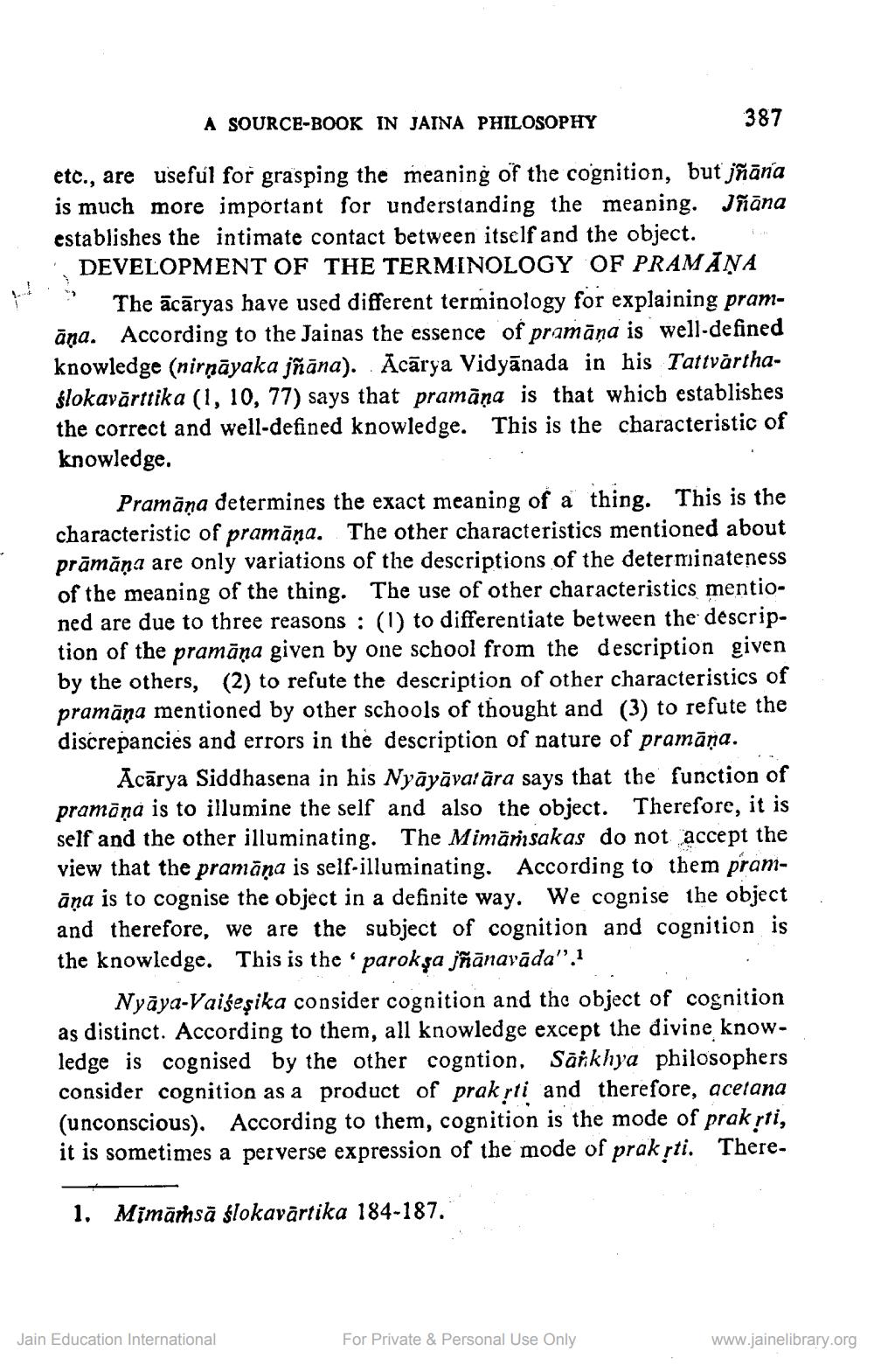________________
A SOURCE-BOOK IN JAINA PHILOSOPHY
387
etc., are useful for grasping the meaning of the cognition, but jñānía is much more important for understanding the meaning. Jñāna establishes the intimate contact between itself and the object. . DEVELOPMENT OF THE TERMINOLOGY OF PRAMĀŅA
The ācāryas have used different terminology for explaining pramāna. According to the Jainas the essence of pramāņa is well-defined knowledge (nirņāyaka jñāna). Ācārya Vidyānada in his Tattvārthaślokavārttika (1, 10, 77) says that pramāna is that whicb establishes the correct and well-defined knowledge. This is the characteristic of knowledge.
Pramāņa determines the exact meaning of a thing. This is the characteristic of pramāņa. The other characteristics mentioned about prāmāna are only variations of the descriptions of the determinateness of the meaning of the thing. The use of other characteristics mentioned are due to three reasons : (1) to differentiate between the description of the pramāņa given by one school from the description given by the others, (2) to refute the description of other characteristics of pramāņa mentioned by other schools of thought and (3) to refute the discrepancies and errors in the description of nature of pramāņa.
Ācārya Siddhasena in his Nyāyāvai āra says that the function of pramāņa is to illumine the self and also the object. Therefore, it is self and the other illuminating. The Mimärsakas do not accept the view that the pramāna is self-illuminating. According to them pramāna is to cognise the object in a definite way. We cognise the object and therefore, we are the subject of cognition and cognition is the knowledge. This is the 'paroksa jñānavāda".1
Nyāya-Vaiseșika consider cognition and the object of cognition as distinct. According to them, all knowledge except the divine knowledge is cognised by the other cogntion, Sankhya philosophers consider cognition as a product of prakrti and therefore, acetana (unconscious). According to them, cognition is the mode of prakrii, it is sometimes a perverse expression of the mode of prakşti. There
1. Mimārhsā ślokavārtika 184-187.
Jain Education International
For Private & Personal Use Only
www.jainelibrary.org




